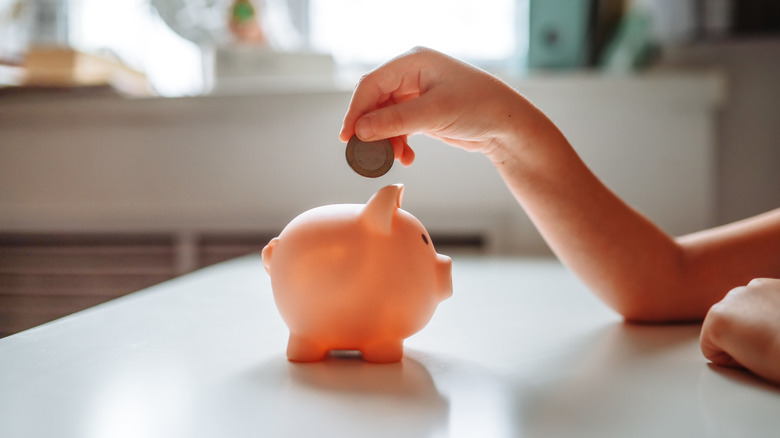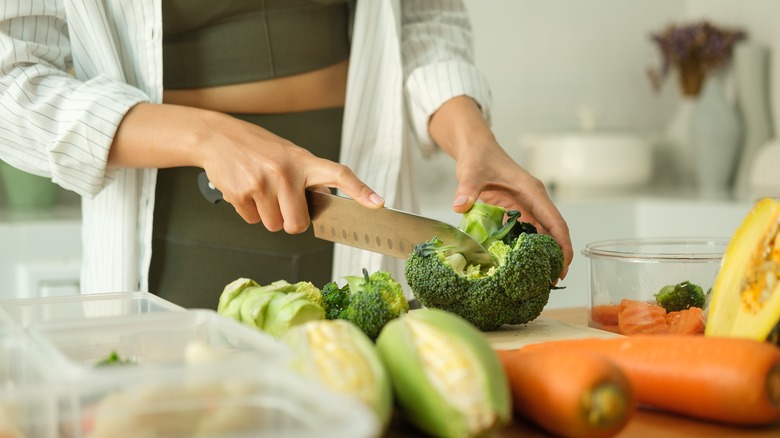Frugal People Make This Big Money Move At Work For Extra Savings
Frugality is about being intentional with money in order to increase savings and reach financial goals without giving up life's joys. One of the simplest things that frugal people do is pack lunch for work. While it may feel minuscule compared to grander financial strategies, this small choice can lead to huge savings considering how much money you might otherwise spend on fast food and takeout daily. After all, these small habits can compound over time and act as stepping stones for larger financial success.
Today, the average fast food meal costs around $11.56, according to LendingTree, which means eating out for lunch five days a week adds up to roughly $230 a month or $3,000 a year — and that's just for fast food. Despite grocery bills going up, home-cooked meals are much more affordable, ranging between $4 and $6 per meal. By swapping restaurant lunches for a home-cooked meal at work, you can save over $1,500 a year.
The ripple effect of packing a lunch on your finances
Packing a lunch may feel like a small decision, and even $1,500 may feel like a minor boon for some, but it can create a ripple effect that extends far beyond your current wallet. Consistently saving even a few dollars builds financial momentum and discipline to tackle larger financial goals. For example, by redirecting lunch savings, you can pay off debt sooner, which can eliminate a source of stress and reduce the amount of interest paid over time. Or you can funnel the money toward retirement savings, bringing you closer to the option of retiring early, if that is your goal.
Packing a work lunch also reinforces the mindset of intentional spending, making it easier to prioritize other financial decisions. Combined with other frugal habits like budgeting, bulk shopping, and meal planning, these small actions can empower you to take control of your finances and achieve your personal financial goals. But if these habits are too big a commitment, you can start with smaller steps. For example, pack your lunch only on certain days of the work week. Even swapping expensive beverages for plain water can build momentum and make savings feel more achievable.

